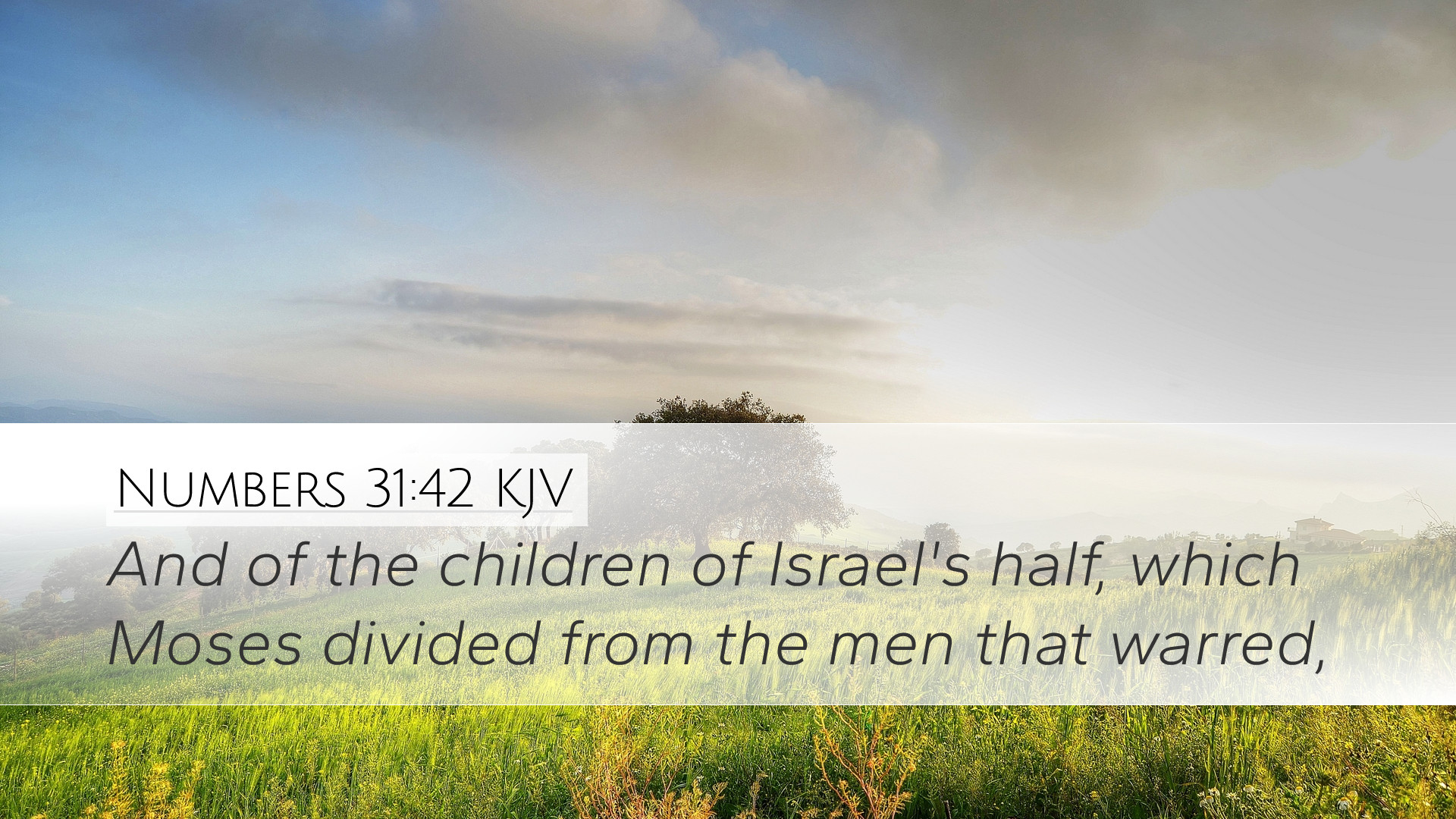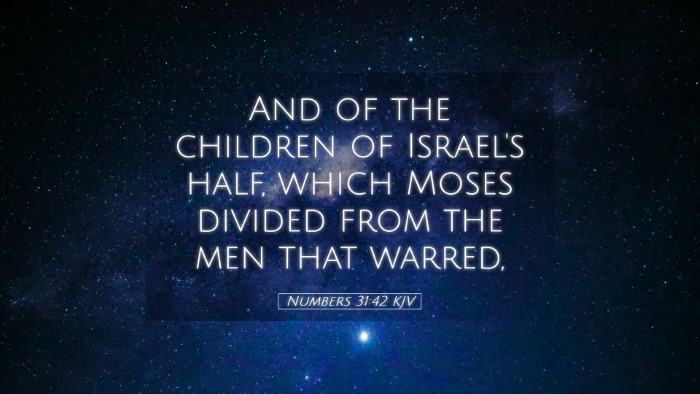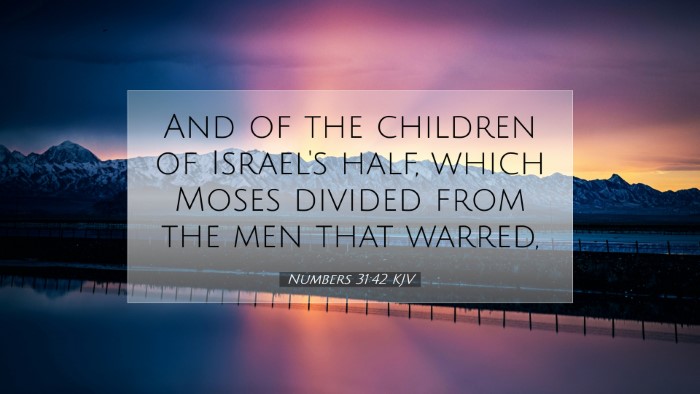Commentary on Numbers 31:42
Numbers 31:42 states:
"And of the children of Israel's half, which Moses divided from the men that warred, now the rest of the congregation was six hundred thousand and one thousand seven hundred and thirty." (KJV)
Introduction
This verse forms part of the account following Israel's victory over the Midianites. It details the distribution of spoils and the population of Israel's fighting men. Several commentaries shed light on the implications of these numbers and the broader theological and practical lessons from the event.
Exegesis and Analysis
Historical Context: As the Israelites are poised to enter the Promised Land, they engage in warfare that is both a means of securing their inheritance and fulfilling God’s judgment upon the Midianites. The calculation of the people in this verse emphasizes God’s providential care over Israel.
Moses’ Division: The division of spoils highlights Moses' leadership and the system of accountability he established within the community. The distinction made in the verse regarding those who fought and those who remained reveals the structure of military duty and societal participation in divine judgment.
Commentary Insights
Matthew Henry's Commentary
Henry notes that the counting of the people is indicative of God's blessing and faithfulness. He emphasizes the importance of the numbers: this indicates a strong and unified community, which is critical for understanding the military might of Israel. The precision of the count reflects the orderliness that God demands in His camps.
Albert Barnes' Notes
Barnes elaborates that the number mentioned, representing the non-combatant congregation, underscores the total strength of Israel since it does not account only for the warriors but also for those who rely upon them. This totality signifies that every person has a role in the community's existence and sustaining God's promise to the nation.
Adam Clarke's Commentary
Clarke provides an analysis of the phrase "which Moses divided from the men that warred," suggesting that the distribution was not merely a matter of spoils but involved considerations of stewardship and divine justice. Clarke emphasizes that these numbers serve as a reminder of God's deliverance and the necessity of obedience to His commands in achieving victory.
Theological Implications
This passage and its commentary provide deep theological reflections on divine justice, the role of leadership, and the function of God's covenant people. Each individual’s role within Israel is vital to the collective identity and purpose mandated by God.
Covenant Community:
The reference to the "children of Israel" evokes the sense of a collective covenant relationship with God. The organization of men based on their roles within this narrative illustrates the complexity and depth of what it means to be a part of God’s people.
God's Sovereignty and Provision:
Both Henry and Barnes emphasize the providential care of God demonstrated through the numbers. That Israel has survived and thrived amidst adversities is attributed to God’s sovereignty—a central tenet of Israel's faith that remains relevant today.
Practical Applications
For pastors and leaders in ministry, the text provides profound insights into managing communities and leading with integrity. The principles derived from this passage about accountability, stewardship, and valuing each person's contribution can inform contemporary church practices.
Leadership:
As exemplified by Moses, effective leadership involves both decisiveness in warfare and compassion for the entire congregation. Leaders are called to recognize each member's part in the community's mission.
Community Responsibility:
The idea that every member contributes to the community's well-being is echoed throughout Scripture. This reinforces the collective responsibility to uphold God’s commands and support one another in fulfilling their God-given roles.
Conclusion
Numbers 31:42 encapsulates critical themes present in the narrative of Israel's journey through the wilderness. The interplay between divine instructions, human response, and community dynamics is a rich area of study for scholars, theologians, and pastors alike. Reflecting on the importance of unity and responsibility resonates beyond the ancient text, providing living lessons for contemporary faith communities.
In summary, understanding the complexities of this passage allows for a deeper appreciation of both the historical context of Israel and the enduring truths for today’s believers.


